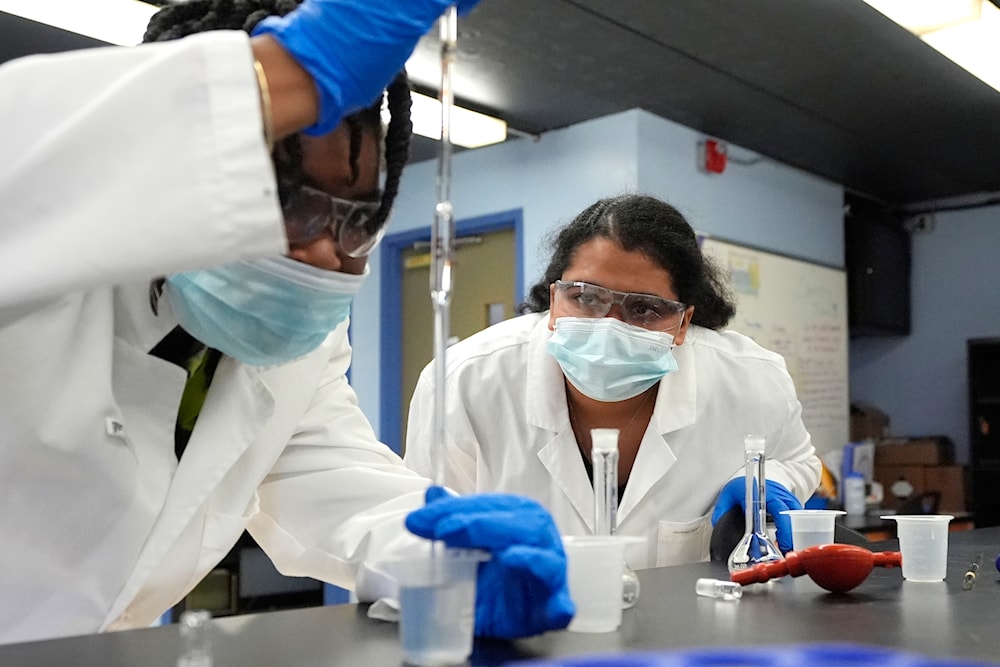New study shows pancreatic cancer may finally have a cure in process
Scientists discover that pancreatic cancer can turn off the advantages of the HNF4A gene, which is essential to human health, leading to the rapid growth of tumors.
-

Sima Gutierrez, right, observes as a teammate examines water at the Flint Community Water Lab, Wednesday, April 3, 2024, in Flint, Mich. (AP)
Researchers have found a critical piece of DNA that may help treat one of the worst tumors.
A group of US and UK researchers has discovered that pancreatic cancer can turn off molecules in one of the most significant genes in the body, facilitating the disease's quick growth and spread.
With more than half a million new cases identified each year, pancreatic cancer ranks as the 12th most frequent cancer globally. Out of all the most prevalent forms of the disease, it has the lowest survival rates.
Dr. Maria Hatziapostolou, of Nottingham Trent University’s John van Geest Cancer Research Centre, explained, “This work, which has provided new understanding and knowledge of how the cancer behaves, will hopefully help pave the way for potential new treatments in the future.”
“Pancreatic cancer has the lowest survival of all the 20 common cancers. The survival of patients beyond five years has improved very little for some time and so it’s extremely important that we find new ways to better understand this disease, how it spreads and why it is so aggressive," she added.
Read next: Dr. Philip Salem: Lebanese architect of the cancer cure, ICTriplex
With few treatment options available, pancreatic cancer is frequently identified at an advanced stage, and over half of patients pass away within three months of receiving a diagnosis.
The researchers examined tissue samples from both pancreatic cancer and healthy individuals for the study, which was published in the journal Gastro Hep Advances. They discovered that molecules in the typically beneficial HNF4A gene were turned off due to a process known as DNA methylation, which is set off by pancreatic malignancies and promotes the rapid growth of tumors.
Due to its role in promoting the healthy functioning of numerous body organs, the HNF4A gene is essential for human health. However, pancreatic cancer can subtly negate the advantages of the gene, the researchers found.
Hatziapostolou said, “Loss of HNF4A drives pancreatic cancer development and aggressiveness and we now know correlates with poor patient survival.”
The head of research at Pancreatic Cancer UK, which funded the research, Dr. Chris Macdonald, stated, “We desperately need kinder and more effective treatment options for pancreatic cancer. The majority of pancreatic cancers are diagnosed at a late stage, with 80% not being detected until after the disease has spread and is no longer operable.”
“This project gives us new information on how pancreatic cancer is able to suppress certain molecules to help it spread aggressively around the body which, in turn, could lead to the development of more effective treatment options in the future.”
Last month, in a groundbreaking development poised to transform breast cancer management, a new blood test was shown to predict the risk of breast cancer returning up to three years before any tumors are detectable on scans. This "incredibly exciting" breakthrough promises to significantly enhance survival rates by enabling earlier, more targeted treatment.

 3 Min Read
3 Min Read








